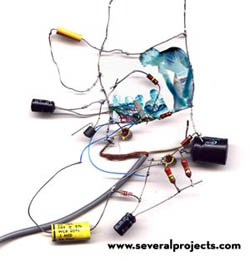by Corey Dargel

In a recent article written for Rupert Murdoch’s Wall Street Journal, Greg Sandow claims that the non-profit arts world doesn’t have a good enough argument for its own economic relevance.
He raises legitimate concerns about the NEA primarily supporting symphonies and opera companies, institutions that pay obscene salaries and charge obscene admission prices. Overall, though, the article is a smug, shallow critique that offers no suggestions or solutions, much like the current Republican strategy of contentious obstruction.
I read the Sandow article just before I started reading Remix, and it colored my experience of the book. I was thinking about why people are hostile or apathetic toward the arts and what, if anything, can be done to change their attitudes.
One of Lessig’s goals in reforming copyright laws is to make it easier for the average person to create remixes. This, he argues, will not only make the average person’s life richer; it will also expand her understanding of what’s involved in the process of making art. Now more people than ever have access to tools like GarageBand, iMovie, Wavelab, etc., which allows them to experiment with manipulating content in a creative way. In doing this, they become better acquainted with both the playful and logistical/technical aspects of creating something original.
Before recordings existed, amateur singers and instrumentalists would regularly get together and play through musical scores for entertainment. They knew from experience how difficult it was to play or sing well, so they truly appreciated the work and talent it took to be a professional musician or composer. Lessig believes remixing can work the same way: the more amateur remixers there are, the more appreciation there will be for professional artists, especially those who use technology.
Does this hypothesis ring true to you? If so, do you think this is a possible step toward more public support for the arts?

